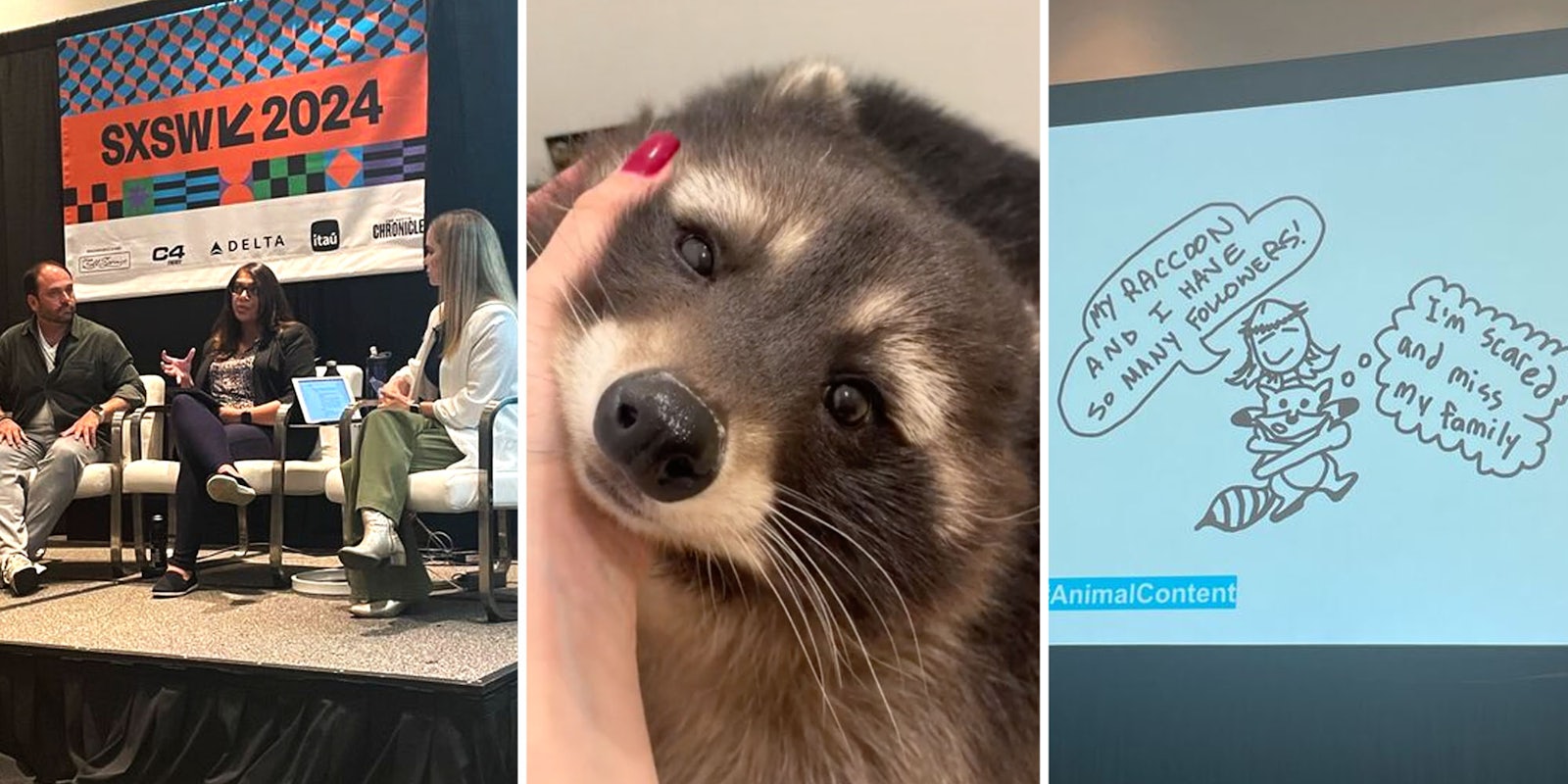A panel of animal behavior experts and social media specialists warned against posting that video of you rescuing a squirrel or another wild animal. What might seem like a harmless post could maybe kickstart the next pandemic, they said.
“In general, you don’t want to assist a wild animal. The best thing is to just call a rescue center, if you can, and get somebody that is qualified to come and help you,” said Luisa Arnedo of National Geographic. Arnedo participated in a panel this week at South by Southwest entitled, “Animal Content: A Vibe or a Big Yikes?“
But what if you can’t get a rescue to assist?
“I would advise not to post [a video to social media],” she said. “Because you might not be hurt, but the next person that finds that animal in a similar situation might. Just take a step back and just kind of think about the unintended consequences of posting something.”
Her co-panelist, Shawn Sweeney of the Jane Goodall Institute, agreed. “For better or worse, we’re exposed to people who seem to be doing these heroic acts with animals, and certainly many of us know that animal content can go viral,” he said. “And so there’s a lot of motivation there for us to use animals in this way.”
He continued, “And unfortunately in the case of a raccoon, there are videos out there that show people bringing a raccoon or a squirrel into their home and attempting to rehabilitate them on their own, whether they have professional training or not. And the more of that that we see happen, where it seems like there is a reward for doing that, when, like Louisa is saying, we might have some unintentional consequences of that.”
Scientific evidence suggests that the COVID-19 virus spread to humans via spillover from animals. Experts are working to reduce the risk of zoonotic outbreaks, which are on the rise due to increased human interaction with wildlife.
“We all experienced COVID-19, and the more we kind of promote these behaviors with animals, the more we create incentives for promoting this kind of content, the greater the chances of unintended consequences like that,” Sweeney said. “The science of COVID shows us that humans coming into contact with wildlife poses really big risks. And, for many of us, a raccoon is something we can identify with–and they are a carrier of what we call zoonotic diseases. Rabies.”
Sweeney said it’s very difficult and risky to take on the rehabilitation of a wild animal. “They make it look easy in a lot of these posts, but it’s harder than it seems, and you’re exposing yourself, your family, and potentially other people, to a lot of harm and risk by doing it,” he said. “So that’s another thing to be mindful of. Like Louisa said, leave it up to the professionals who really know what they’re doing.”
From the social media perspective, Preeti Desai of the National Audubon Society said it’s important to provide context when you’re posting videos or photos of wild animals just because they’re cute. It could have unintended consequences on your viewers.
@saszatheszop Who’s the sweetest raccoon on planet? 😌🦝 #cuteraccoon #puppyeyes #raccoonlife #petlife #petlove ♬ Raccoon – Betty And The Bobs
“How are you going to avoid inspiring somebody else to go chase an oppossom in their backyard?” Desai said. “Think about what somebody is going to take away from the first few seconds of your video. That’s where the biggest impact can really be. So is there something you can do beyond your caption to provide that context?”
She continued, “In the day of TikTok and Reels, you can add text onto your video. Or can you do a voice over? Or something like that to provide that context that somebody who is not going to read your caption is going to see?”
The internet is chaotic—but we’ll break it down for you in one daily email. Sign up for the Daily Dot’s web_crawlr newsletter here to get the best (and worst) of the internet straight into your inbox.

